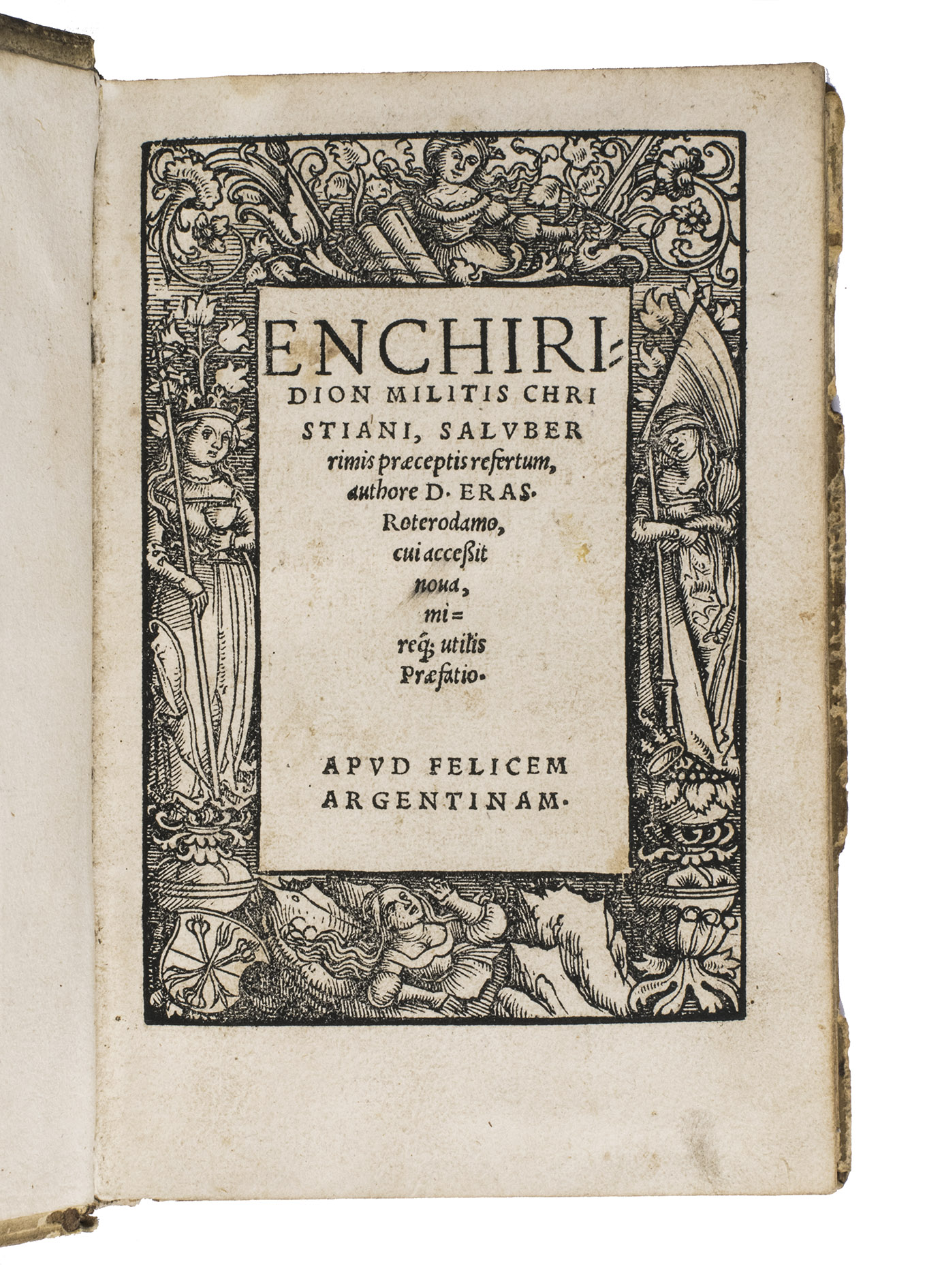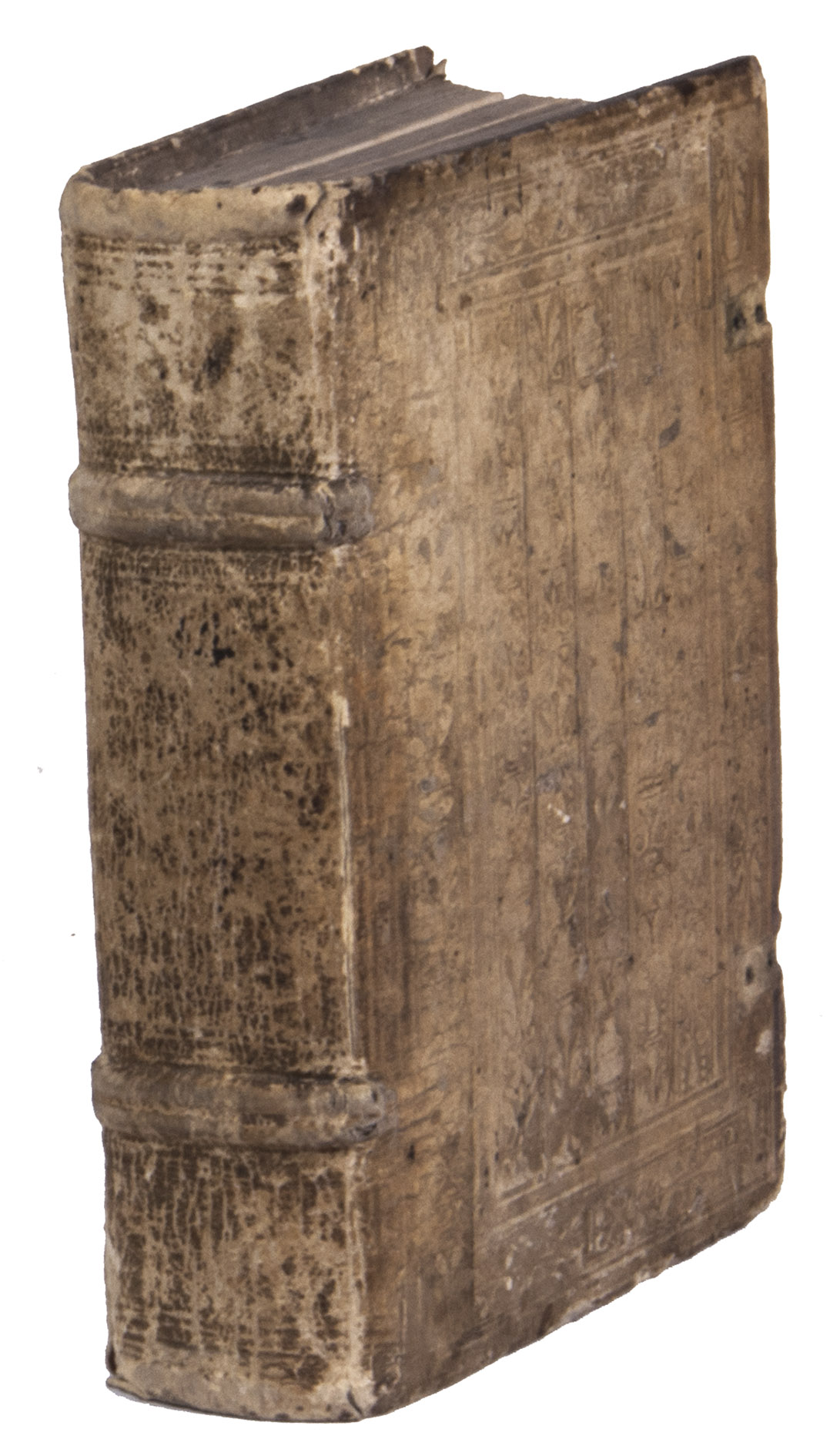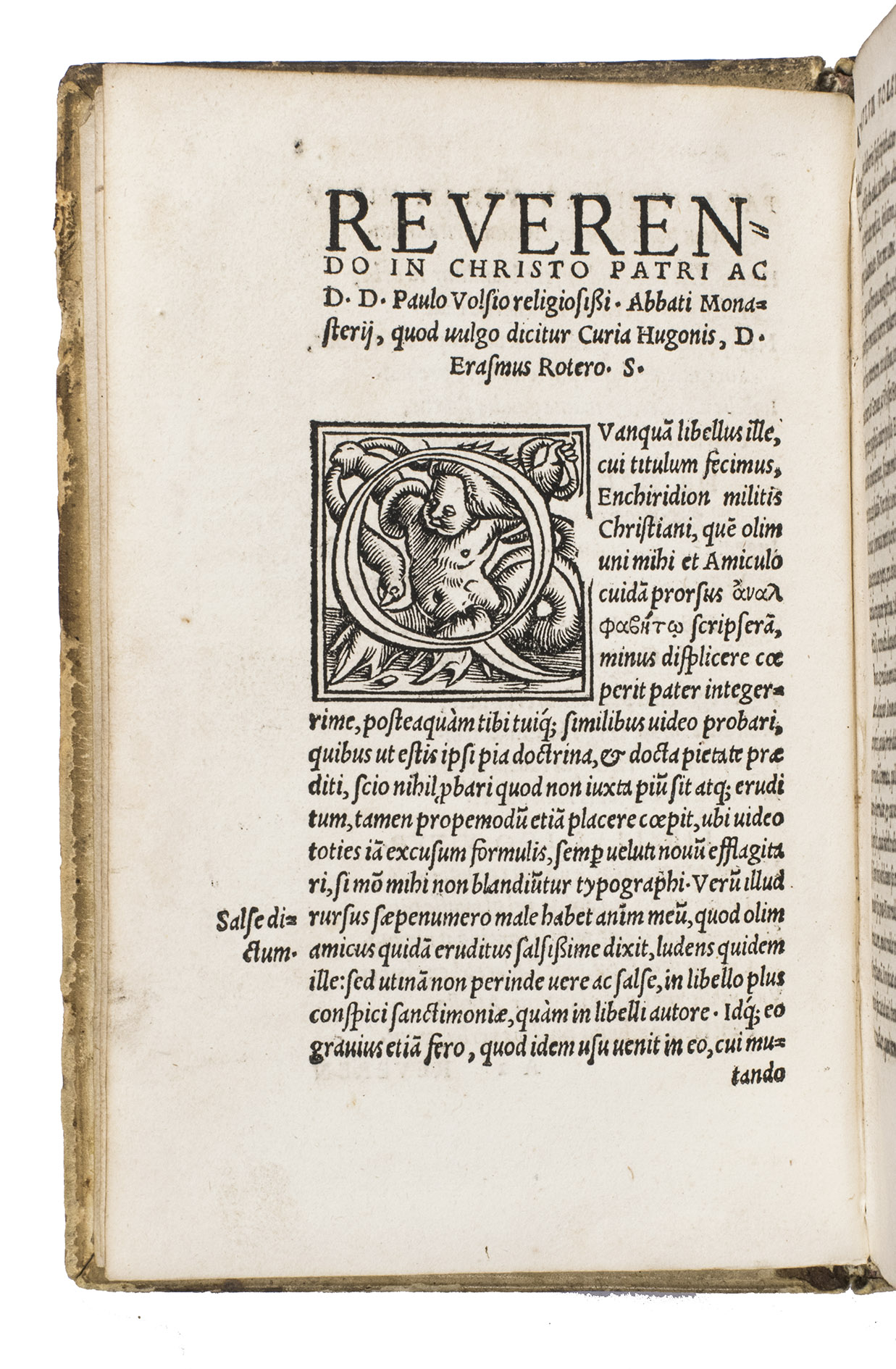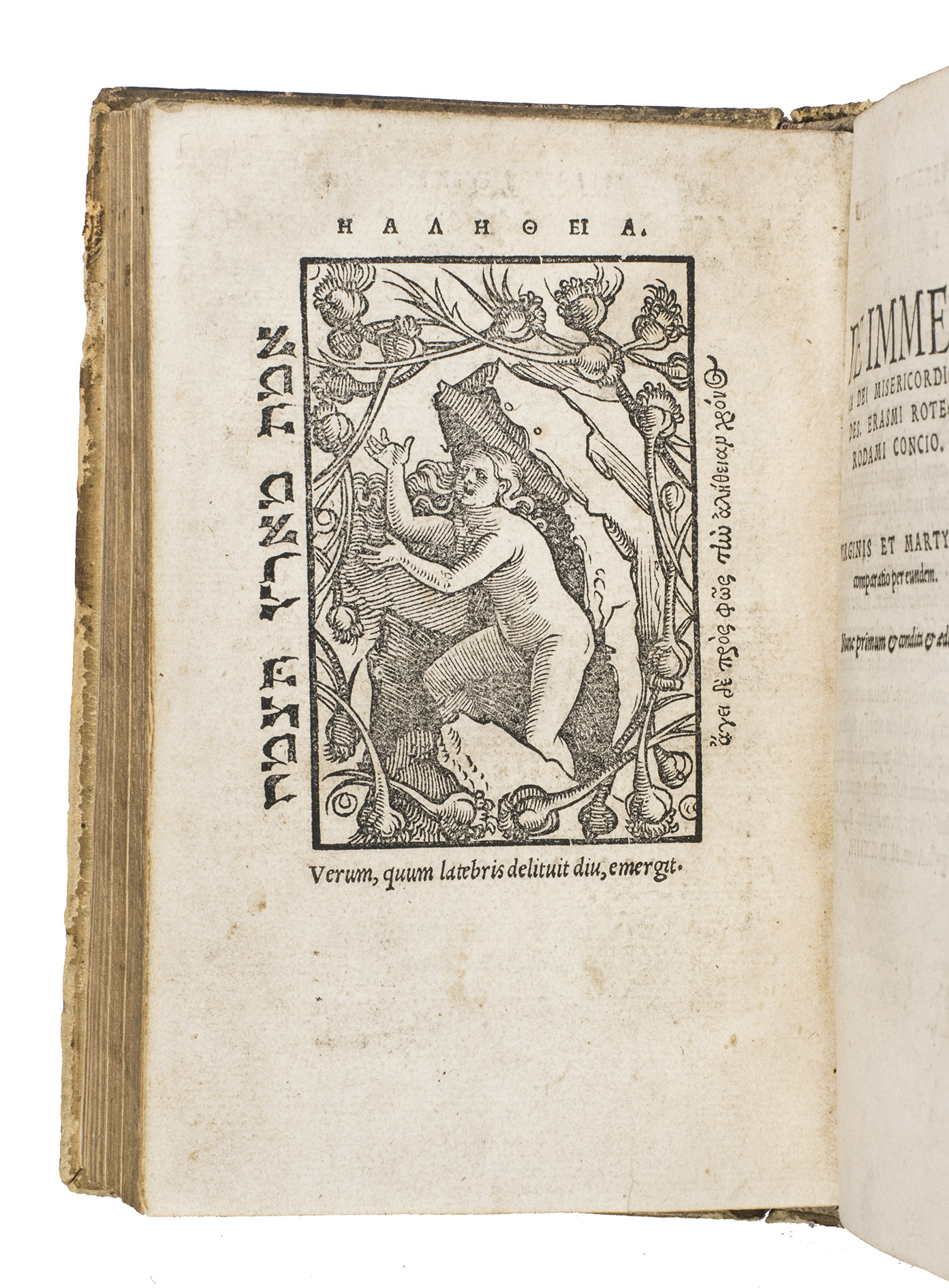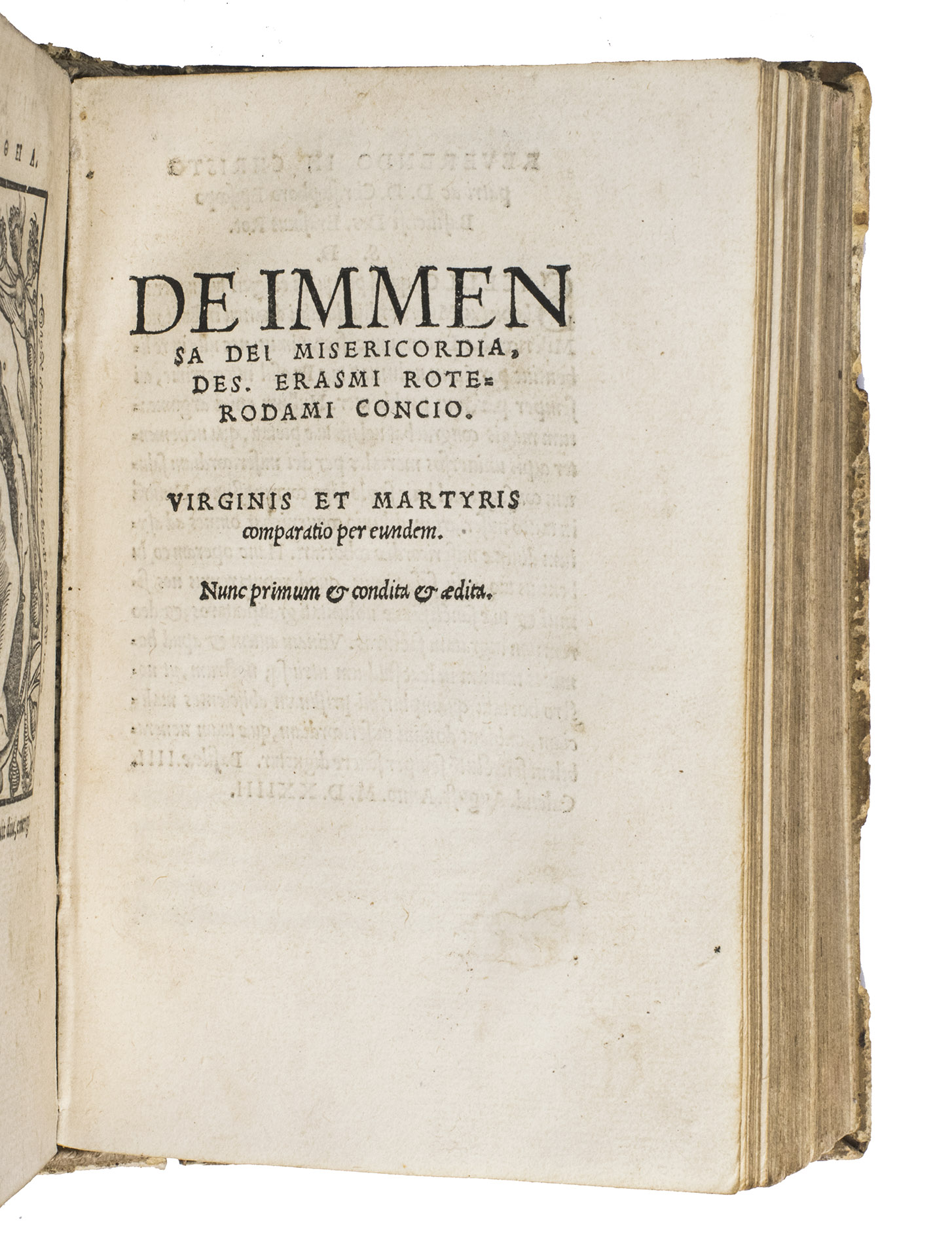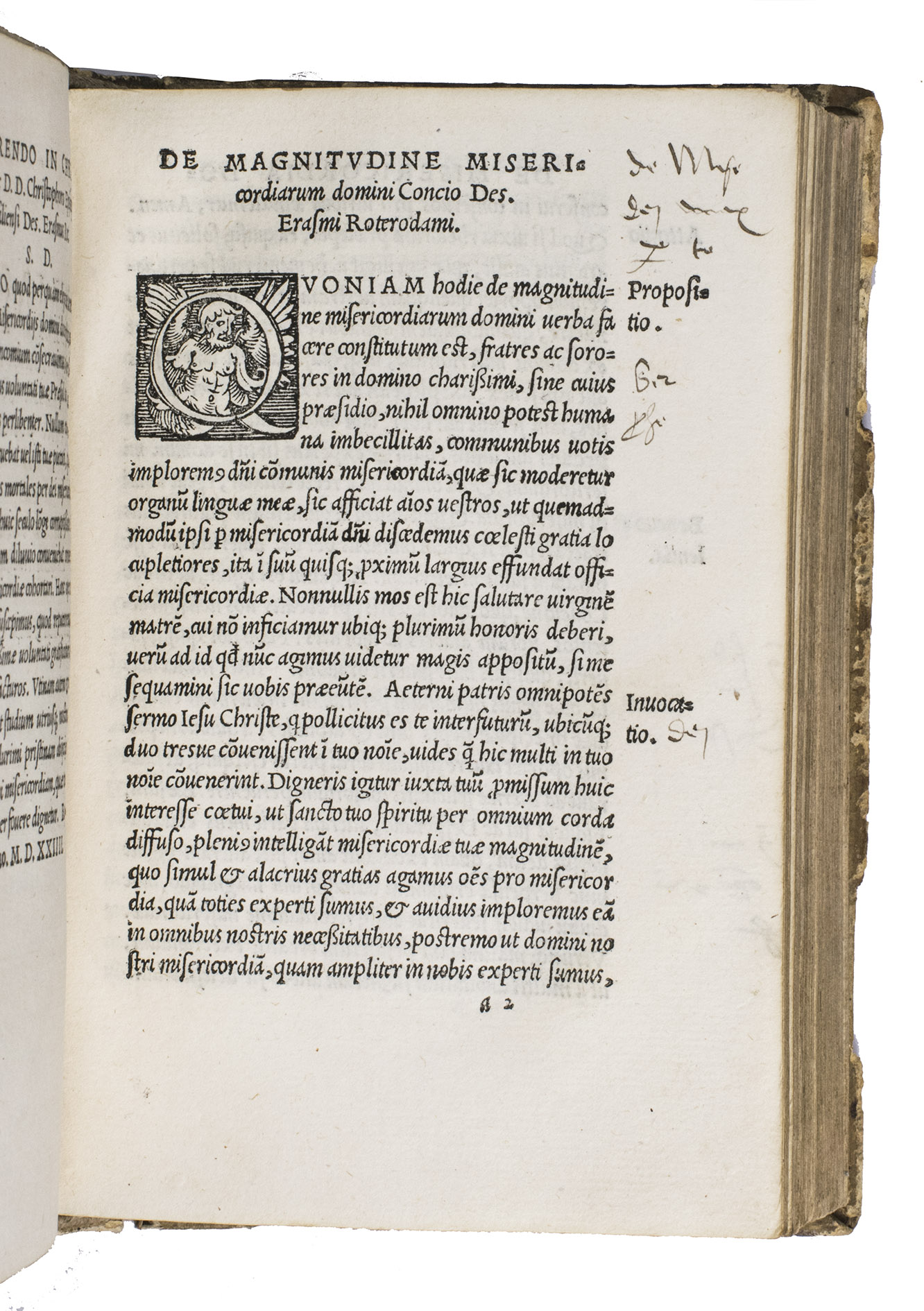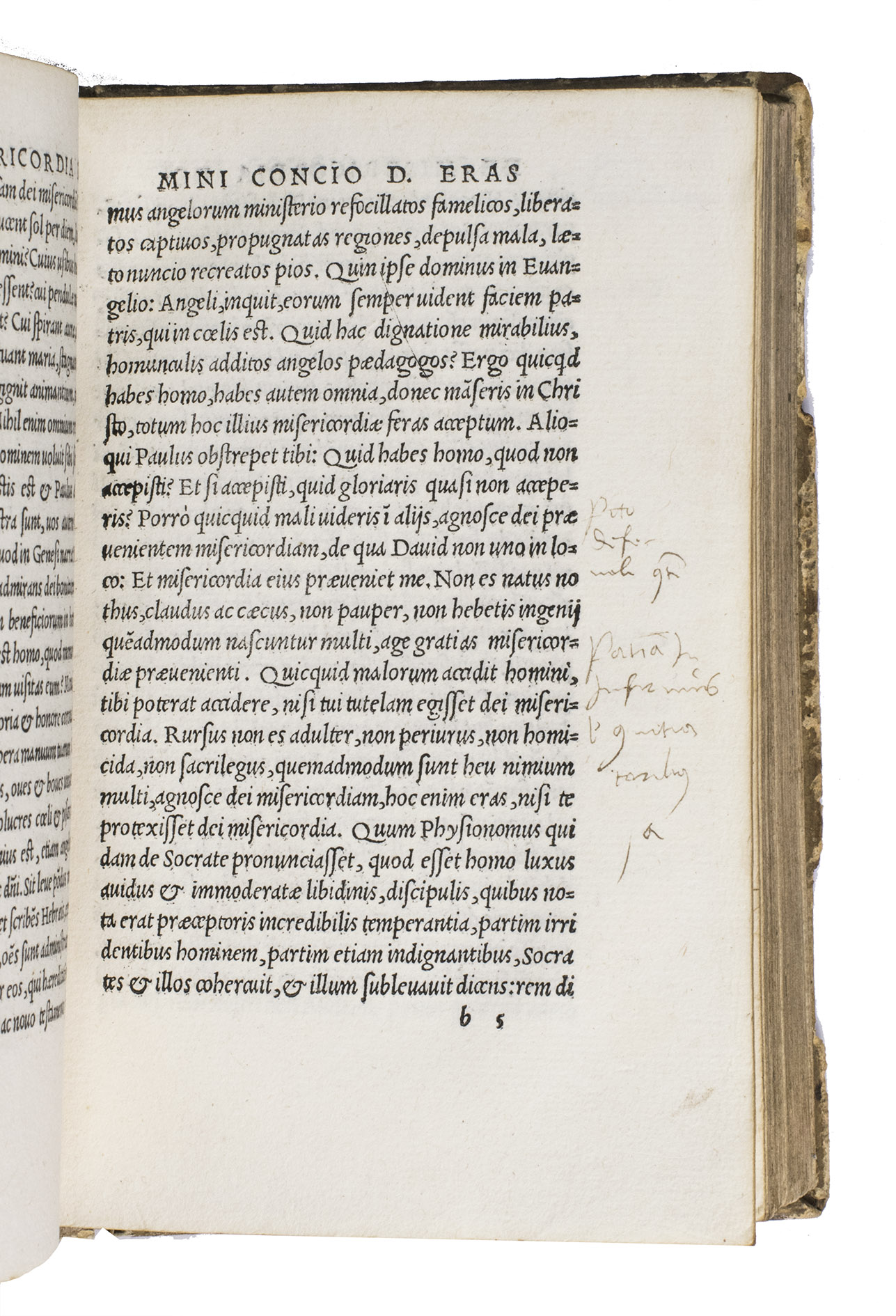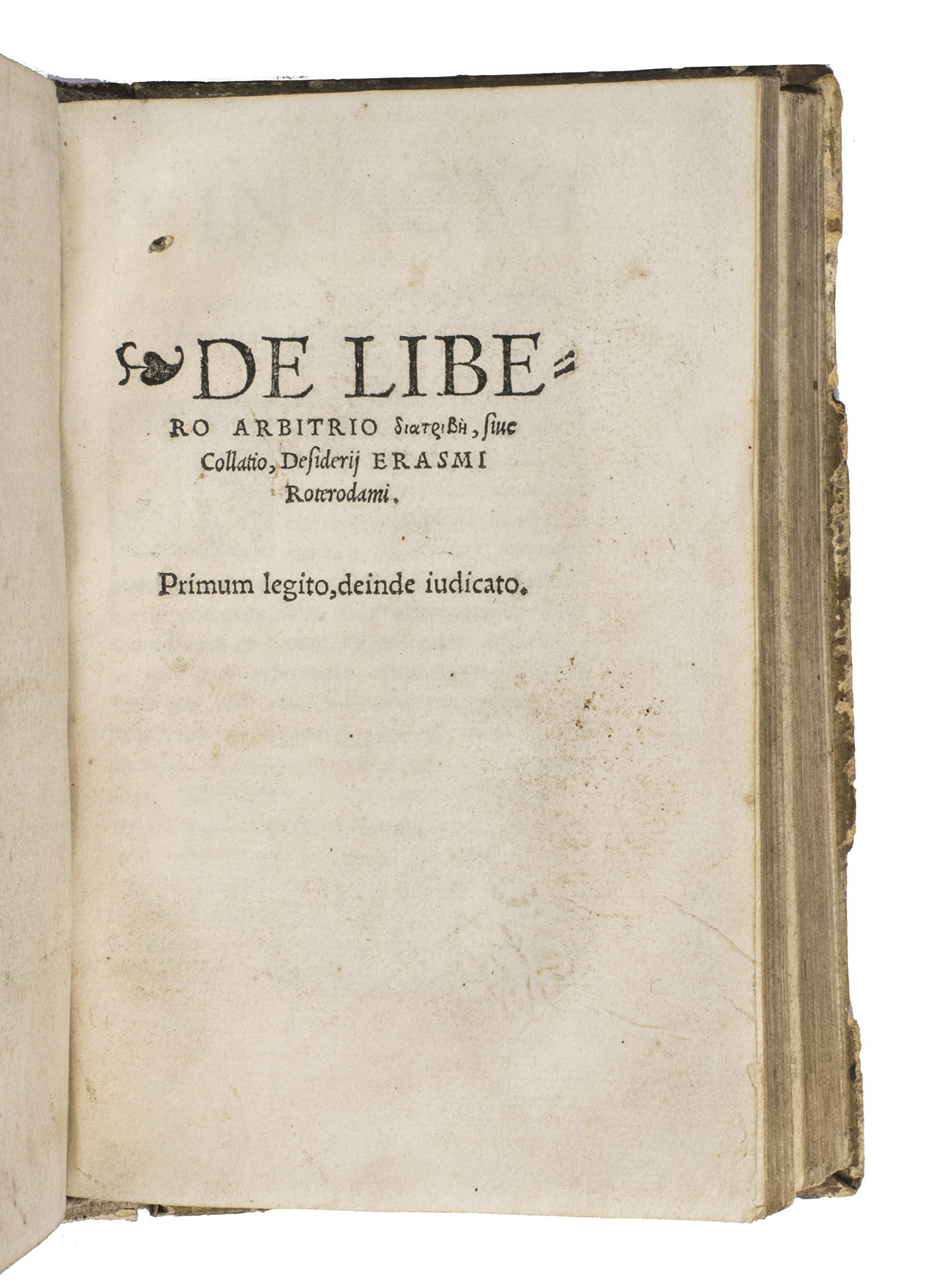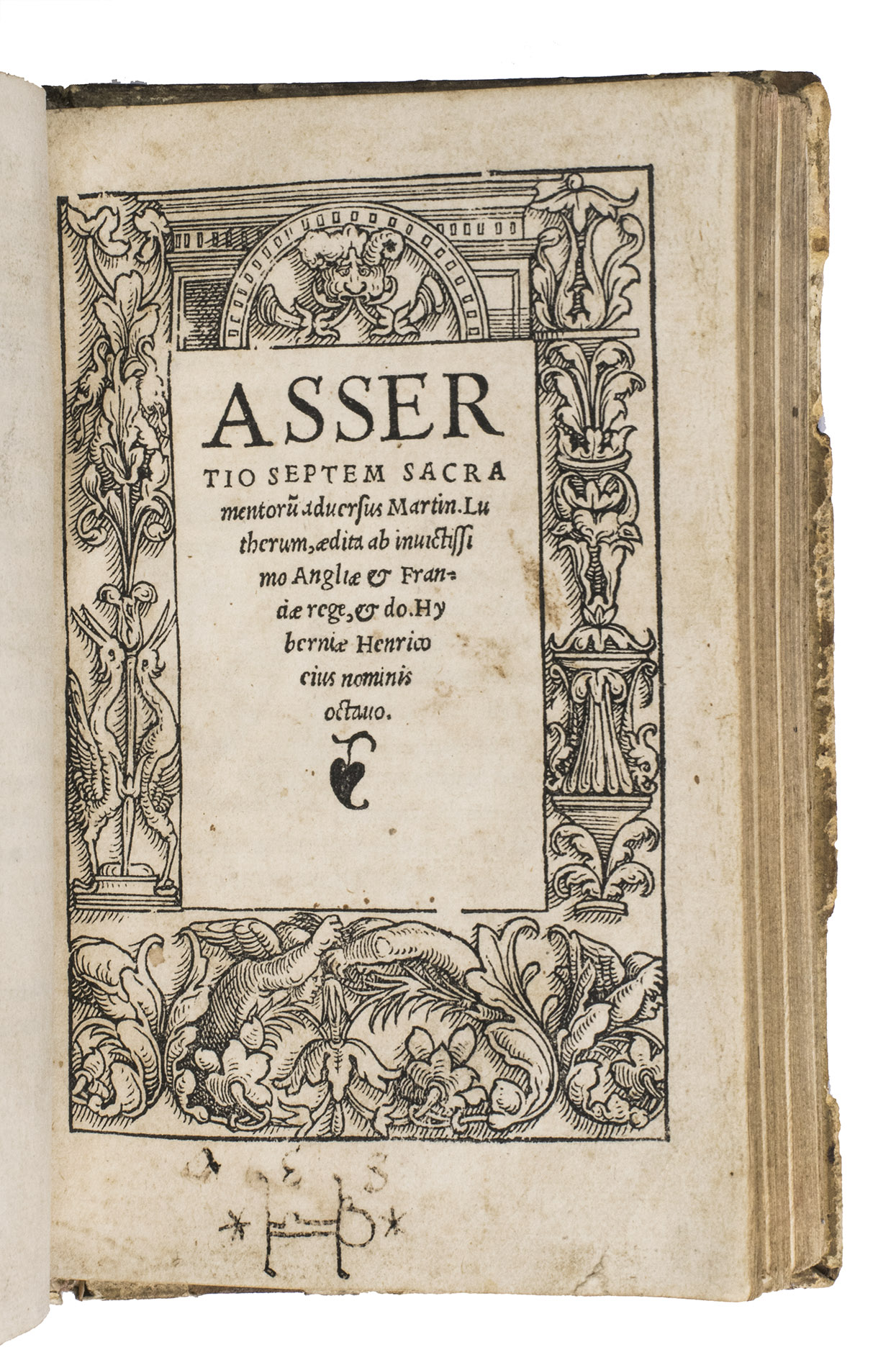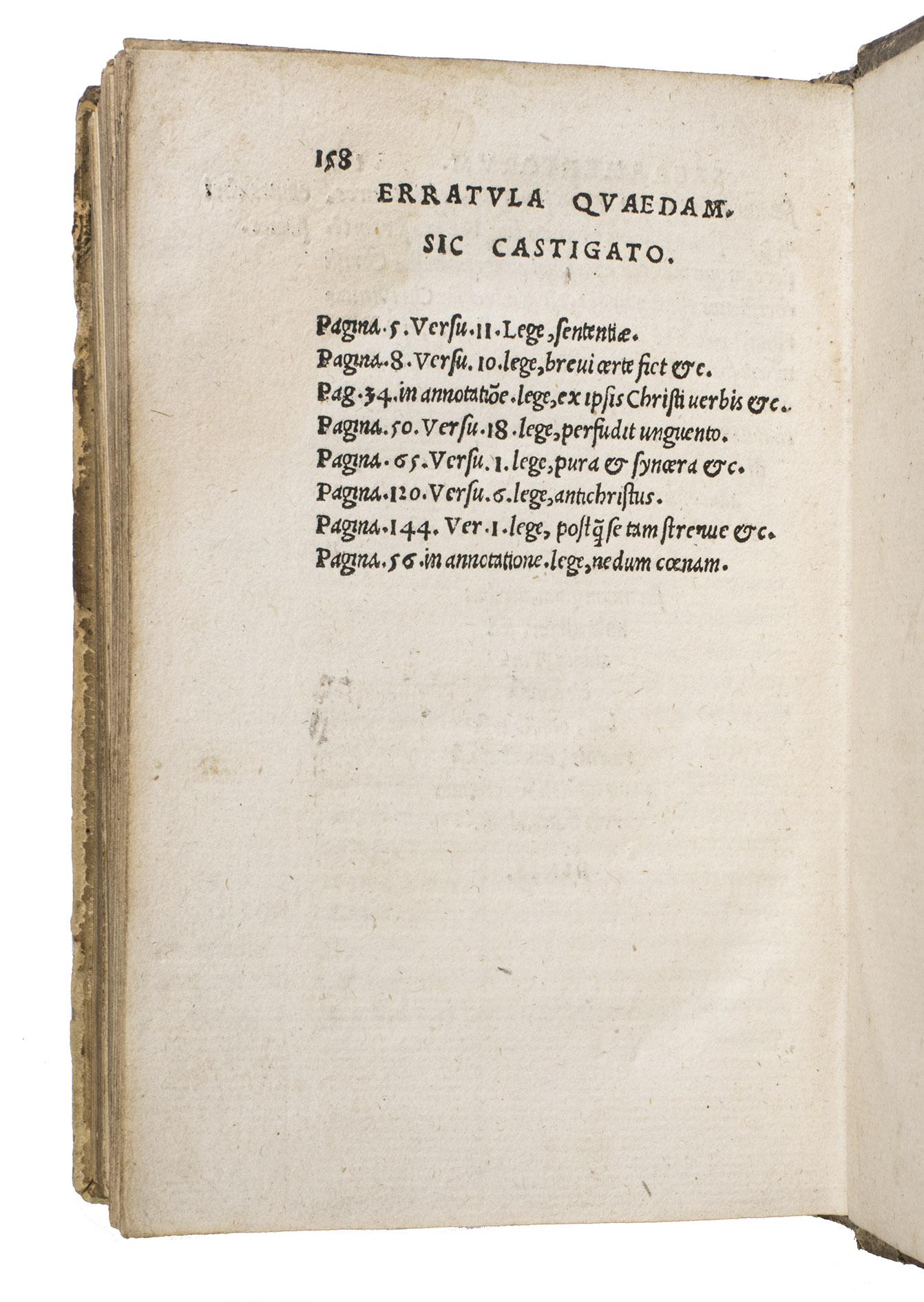ERASMUS, Desiderius.
Enchiridion militis Christiani, saluberrimis praeceptis refertum... cui accessit noua, mireque utilis Praefatio.
Strassburg, (Colophon:) Johann Knobloch, April 1523.
With:
(2) IDEM. De immensa Dei misericordia ... Virginis et martyris comparatio per eundem. Nunc primum et condita et edita.
Including: IDEM. Virginis et martyris comparatio.
[Nürnberg, Johann Petreius, 1524].
(3) IDEM. De libero arbitrio diatribè, sive Collatio.
[Nürnberg, Johann Petreius, 1524].
(4) HENRY VIII, King of England. Assertio septem sacramentoru[m] aduersus Martin. Lutherum, aedita ab invictissimo Angliae & Franciae rege, & do. Hyberniae Henrico eius nominis octavo..
[Mainz, Johann Schöffer, 1522?]. 4 works in 1 volume. 8vo. Ad 1 with a woodcut frame on the title page, 1 woodcut decorated initial, and Knoblochs large woodcut device on the verso of the last blank leaf. Ads 2 and 3 with 1 woodcut decorated initial each. Ad 4 with a woodcut architectural frame on the title page and 1 large woodcut decorated initial. Contemporary elaborately blind-tooled pigskin over wooden boards, remnants of brass anchor plates. 106; [57], [1 blank]; [49], [1 blank] ll.;158 pp.
€ 18,000
Four significant early 16th-century works that illuminate the intellectual and theological tensions of the Reformation.
Ad 1: The Enchiridion militis christiani ("Poinard of the Christian Knight"), one of Erasmus most influential writings, serves as a practical manual for inner reform and devout living. Emphasising moral integrity over ritual, this widely reprinted work became a cornerstone of Christian humanist thought.
Ad 2: The two homilies in De immensa Dei misericordia include a sermon on divine mercy, likely composed for the dedication of a chapel in Basel, and a second, comparing virginity and martyrdom, written for the Benedictine nuns of Cologne. Both reflect Erasmuss pastoral sensibilities and rhetorical skill.
Ad 3: In De libero arbitrio, Erasmus directly challenges Luthers doctrine of predestination in a pivotal treatise on free will. This foundational text, marking the definitive break between the two reformers, is one of the periods most significant theological works.
Ad 4: The volume concludes with an early -and apparently rare- edition of Henry VIIIs Assertio septem sacramentorum, a fierce rebuttal of Luthers De captivitate Babylonica. This work earned the English king the title Fidei Defensor from Pope Leo X.
A splendid collection that captures the core tensions of the Reformation and the humanist response to it.
Ad 1 with some of the text underlined. Ad 2 with manuscript annotations in the margins. Ad 3 with some marginal annotations and some of the text underlined. Ad 4 with a manuscript inscription on the title page and a few annotations in the margins. The binding shows signs of wear, some small pieces of leather missing on the back board revealing the wood below, remnants of fastenings along the fore-edge, ads 2 and 3 with some minor (worm) holes in the paper, barely affecting the text, some staining and browning in places. Otherwise in good condition. Ad 1: USTC 650175 (7 copies); Vander Haeghen I, 80; VD 16 E 2772; Ad 2: Bezzel 1131; VD 16 E 3041 (and VD 16 E 3659); not in the USTC; Ad 3: VD 16 E 3151; not in the USTC; Ad 4: VD 16 H 2166; this ed. not in USTC.
Related Subjects:
